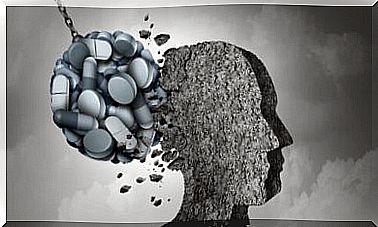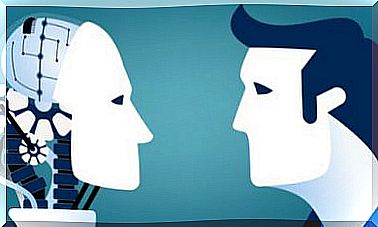Let’s Pretend We Are And End Up Being

Let’s pretend everything good already embraces us so that it reaches us sooner. Let’s pretend we are already happy so that our emotions convince us of it. Believing each day with firmness and conviction that we deserve what we want is not an act of selfishness, in fact, it is the first step towards personal growth.
Let’s think about it for a moment: if we don’t convince ourselves that we can and should get out of a depression, an unhappy relationship, or a job that violates our rights, no one else will. The true hero who has allowed you to get out of those vital black holes in which you have been immersed on multiple occasions, has been you, and the way in which you have achieved it is undoubtedly through an iron will and a thought that was clear to you. its objective.
Nowadays, it is very common to see works, books and interesting publications where they encourage us to become the CEO (English acronym of Chief Executive Officer or executive director in Spanish) of our own brain. What is intended above all is to put on the table the need for all of us to understand how the brain works in order to have more control over its processes.
In fact, if there is one thing that we have all known for a long time, it is that the human being is a complex entity guided and dominated by emotions. It is they who attack us, guide us, make us drunk with dopamines, serotonin and oxytocin and they are the ones who sometimes add us to that chemical shipwreck that drowns us in permanent states of sadness and defenselessness.
Now, sometimes, it is also very necessary to rise as the CEO of our brain to take control and guide us towards change: towards well-being. We explain how to do it.

The “emotional kidnapping” prevents us from growing
Overcoming the negativity bias of our brain to promote positive neuroplasticity is not easy. It is not in the first place because many of us have as an “executive director” in our brain, an addict to practice self-criticism and to influence over and over again the same ideas and limiting attitudes like a little hamster turning his wheel. games.
Many experts on human behavior call this common practice “child’s logic.” In other words, these are moments when, simply, we allow ourselves to be kidnapped by our negative emotions until we reach an extreme of absolute immaturity. To understand it better, let’s reflect on a simple example: at work we have made a mistake, that failure has in turn meant that others suffered the consequence of that carelessness.
Our mind keeps repeating to us over and over again that of “I’m an idiot, I’m not good for this . ” In turn, the brain further intensifies this state by reminding you of past mistakes and even all the times at home they told you “how clumsy” you were.
Your emotions have cornered you in that hamster wheel where you intensify the negative feeling until you block yourself, until you plunge into a state of complete helplessness. Instead of telling yourself “I made a mistake, I’ll learn from it and I’ll do better tomorrow” , you put yourself chosen directly by a qualifying adjective “I’m an idiot”.

This type of negativity bias that characterizes us so much at various times in our lives, is guided by very specific processes. It is our moods that take all control.
Now, to become a true CEO of our brain, we must take control of these mental processes as if we were the true leaders and not a subordinate who allows himself to be overwhelmed.
Let’s pretend we’re going to convince ourselves that we can be
Neuroscience offers us the possibility of understanding why sometimes we get so carried away by negative emotions. An overactive amygdala, for example, also likes to corner us again and again to the corner of fear. In fact, according to recent research from Harvard University, the cerebellum, always related to our motor activity, could also be linked to our emotional regulation.
As we see, our brain is an entity where emotions have power and where mental processes flow many times based on them. Assuming a passive attitude in these cases supposes fostering personal abandonment and a clear inability to be responsible for our own happiness.
, useful and that serves us to achieve vital purposes.

Four questions to get a stronger brain
To think as if we were happy to end up being so. Is this a fantasy, an entelechy out of a cheap self-help manual? Not really, this phrase contains deep internal mechanisms to reflect on through four simple questions.
- “Am I really?”: Every time you tell yourself that you are clumsy, that you do not deserve to be loved, that you are a failure, or that you have no aptitude to achieve that dream, ask yourself if it is really true. To assume full control over our thoughts, nothing better than to say the following:
- Who or what prevents me from achieving what I want? When we ask ourselves this question, we must be completely honest. Most of the time we are the only ones responsible due to our limiting attitudes.
- ¿ What kind of emotion do now?
- Is that emotion above helping me get what I want?
These last two questions are related. If what I feel throughout the day is fear and insecurity, it is very clear that I am not going to leave the black hole in which I find myself. Nevertheless,
Images courtesy of Akira Kusava









